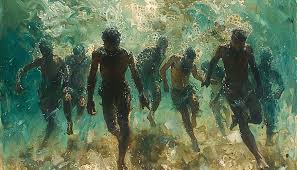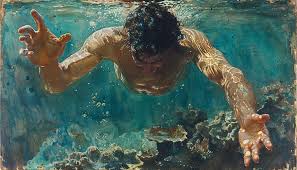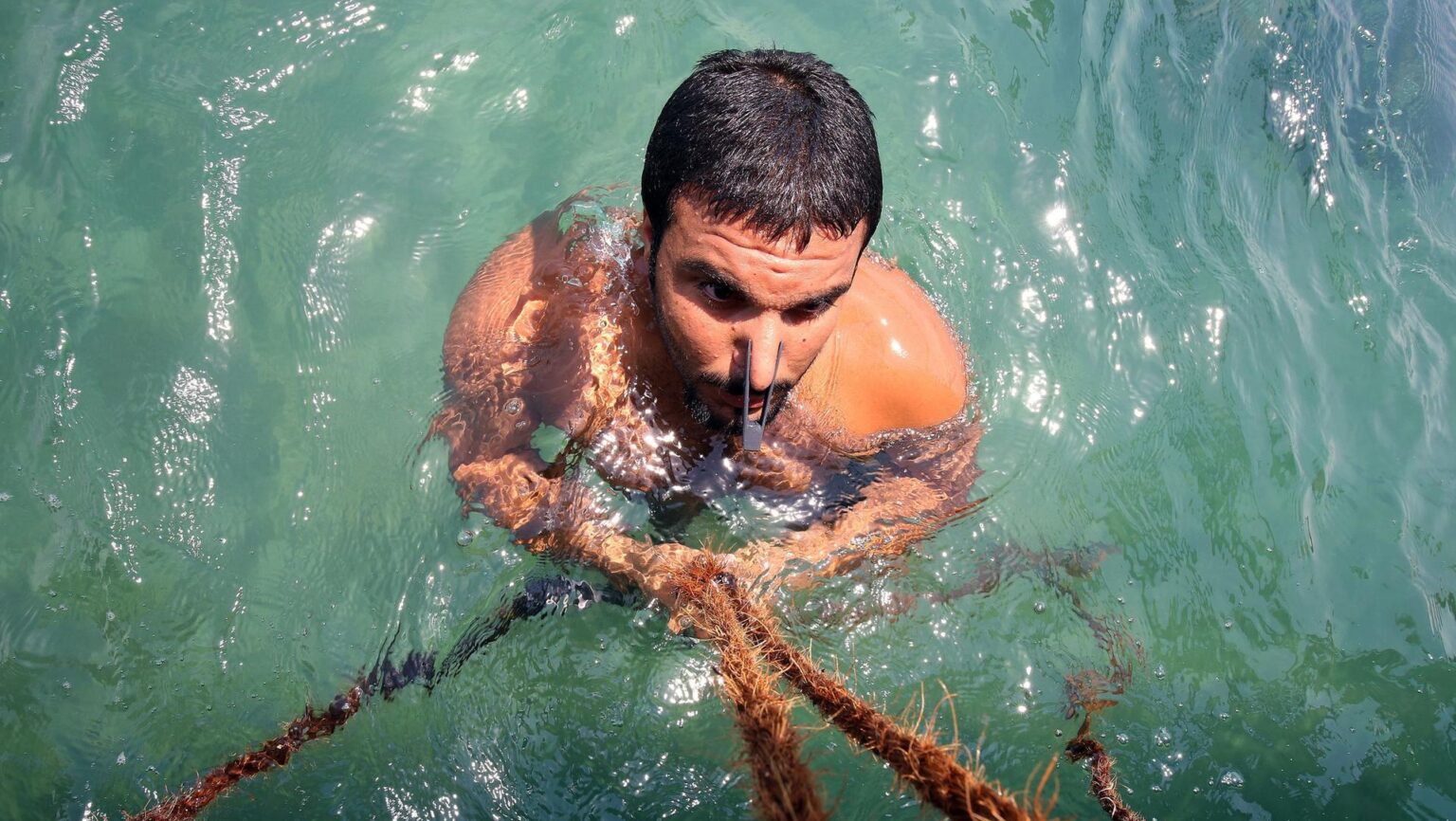The Heartbeat of Kuwait’s Heritage
Kuwait, a land known today for its skyscrapers, oil wealth, and vibrant modern culture, has a story that dives much deeper into the past quite literally. Before the oil boom transformed its economy, Kuwait’s identity was intertwined with the sea. The practice of pearl diving was not merely an economic activity; it was a cultural heartbeat that defined the rhythms of daily life, shaped communities, and fostered a sense of pride among the Kuwaiti people.
Pearl diving was more than work it was a way of life. Families, communities, and even the nation’s social structures were built around the traditions and challenges of this unique practice. Understanding pearl diving is essential to understanding Kuwait’s identity, values, and resilience.
The Origins of Pearl Diving in Kuwait
The story of pearl diving in Kuwait traces back centuries, when the shallow waters of the Arabian Gulf were rich with natural pearls. Kuwaiti divers would embark on long expeditions from small wooden dhows, spending days or weeks at sea in pursuit of the elusive gems.
This practice was not limited to men alone; women played a significant role in maintaining households and preparing supplies for the divers. Generations of families were bound by this shared experience, and the knowledge of the sea and pearls was passed down like treasured heirlooms.
Pearl diving became a unifying force, connecting the people to the sea and to one another, shaping a community-oriented identity that still resonates today.
Life as a Diver: Courage and Tradition
For the Kuwaiti divers, life at sea was a test of courage, patience, and endurance. Divers would descend to the depths of the Gulf, free diving with minimal equipment, relying on sheer lung capacity and instinct. The risk was immense, yet so was the reward. Every pearl brought hope, pride, and the promise of a better life for one’s family.
The divers’ bravery became a source of admiration in Kuwaiti society. Children grew up hearing tales of their ancestors’ courage, and these stories nurtured a collective sense of resilience and determination. Pearl diving instilled values of hard work, risk-taking, and respect for nature traits that remain central to Kuwait’s identity.

Economic Impact: The Lifeblood of Pre-Oil Kuwait
Before oil transformed the region, pearls were Kuwait’s primary source of wealth. They were highly sought after in international markets, especially in India, Europe, and East Asia. The pearl trade brought prosperity, encouraged entrepreneurship, and placed Kuwait on the map as a significant trading hub.
Pearl diving did more than enrich the economy; it fueled innovation. Kuwaiti merchants learned the art of negotiation, international trade, and wealth management, skills that continue to influence the country’s economic culture today. This early engagement with global markets fostered an entrepreneurial spirit that modern Kuwaitis still embrace.
Social Structures and Community Bonds
The practice of pearl diving was deeply communal. The entire process—from preparing the dhows to diving, gathering pearls, and selling them required teamwork. Communities relied on cooperation and mutual support to thrive, and social bonds grew stronger as a result.
Families were interconnected through these maritime activities, creating a network of support that extended beyond immediate kin. Social events, cultural rituals, and festivals often celebrated the sea and its bounty, reinforcing a shared cultural identity. In this sense, pearl diving did more than provide wealth it shaped Kuwait’s social fabric and fostered a sense of belonging that persists even in urbanized Kuwait today.
The Cultural Legacy of Pearl Diving
Pearl diving left an indelible mark on Kuwaiti culture. Folklore, music, poetry, and art often drew inspiration from the sea and the divers’ lives. Songs sung by pearl divers reflected their daily struggles, dreams, and triumphs, giving voice to an entire generation’s experiences.
Even modern Kuwaiti literature and cinema pay homage to this heritage, keeping the memory of the pearl diving era alive. The tales of bravery, dedication, and community spirit continue to inspire pride in Kuwaitis and highlight the resilience and resourcefulness that define the nation.
Gender Roles and Family Dynamics
While men risked their lives diving, women were the unsung heroes of the pearl diving tradition. They managed households, ensured supplies for the divers, and sometimes even participated in trading pearls at local markets. This division of labor created a complementary balance, strengthening family units and emphasizing cooperation and mutual respect.
Women’s contributions were vital to sustaining the pearl diving economy, highlighting the interconnectedness of community roles. The emphasis on family and shared responsibility has endured, influencing modern Kuwaiti society’s values and identity.
Challenges of Pearl Diving: Lessons in Resilience
Life as a pearl diver was far from easy. The divers faced dangers from storms, shallow reefs, and long hours underwater. Yet, these challenges cultivated resilience and adaptability. Every hardship at sea became a lesson in patience, determination, and endurance—qualities that were woven into the cultural DNA of Kuwait.
Even after the decline of the pearl trade due to the introduction of cultured pearls and the discovery of oil, these lessons continued to resonate. Kuwaitis adapted to new industries while preserving the values instilled by generations of divers.
Pearl Diving and National Pride
Pearl diving helped shape a sense of national pride and identity. It created a unique Kuwaiti narrative that distinguished the nation from its neighbors. The tales of divers’ courage, the beauty of the pearls, and the strength of community bonds fostered a shared cultural consciousness.
Today, Kuwaitis look back on the pearl diving era with reverence, viewing it as a symbol of perseverance, heritage, and unity. Museums, cultural centers, and festivals celebrate this legacy, reinforcing its importance in the national identity.

Environmental Connection: Respect for the Sea
The practice of pearl diving also cultivated a deep respect for nature. Divers depended on the health of the sea for their livelihood, fostering sustainable practices and a sense of environmental stewardship. The ocean was both a provider and a challenge, teaching lessons about balance, patience, and responsibility.
This connection to the environment has influenced Kuwait’s contemporary approach to conservation and marine awareness, demonstrating how historical practices continue to shape modern values.
The Decline of Pearl Diving and Its Enduring Impact
With the discovery of oil in the mid-20th century, Kuwait underwent a dramatic economic transformation. Pearl diving declined rapidly, yet its impact on society remained. The cultural values, social structures, and entrepreneurial spirit developed through pearl diving persisted, informing Kuwait’s modern identity and approach to economic growth.
Even as skyscrapers replaced dhows and oil revenues overshadowed pearls, Kuwaitis retained the lessons learned from their maritime heritage resilience, community, courage, and respect for the natural world.
Pearl Diving in Contemporary Kuwait
Today, pearl diving is remembered as a cornerstone of Kuwait’s heritage. Cultural festivals, museums, and educational programs ensure that younger generations understand the historical significance of this practice. Art, literature, and storytelling continue to preserve its memory, creating a bridge between the past and present.
By celebrating pearl diving, Kuwait maintains a connection to its roots while embracing modernity a balance that reflects the nation’s identity, resilience, and pride.
Conclusion: A Legacy That Shapes Identity
Pearl diving did more than provide wealth; it shaped the very soul of Kuwait. Through courage, community, and perseverance, the divers and their families cultivated values that remain central to Kuwaiti identity today.
The legacy of pearl diving is a testament to human resilience and ingenuity, illustrating how traditions can influence national identity long after their economic relevance fades. Kuwait’s story reminds the world that even in a modern, oil-driven society, the past continues to shape who we are, grounding progress in heritage and pride.
Pearl diving’s influence on Kuwait is enduring its lessons resonate in the nation’s culture, social structures, and collective consciousness, making it an integral part of Kuwait’s identity and a source of inspiration for generations to come.
Do follow Gulf Magazine on Instagram.
Also Read – The Incredible Influence of Camels in Kuwait’s Rich Heritage



